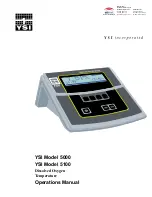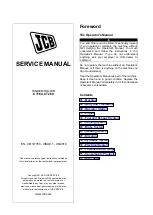28
28
28
L2: Scoop Amount, Duration and
Randomization
ScpAmt (Scoop Amount) sets the amount of pitch
swing (0 to 8 semitones) that a scoop can cover during
its onset. Note that each style has a slightly different
scoop trajectory curve.
Dur (Duration) sets how long it takes for that scoop
to reach its target note.
Rand (Randomization) randomizes several values of
the current style so that each time a new note is sung
or spoken, a slightly different effect will be heard.
Vibrato (VibratoStyle) - Menus L3 to
L6
Vibrato as a singing technique needs no introduction,
yet its implementation in VoiceWorksPlus should be
clarified. The Vibrato block can be used to create an
alternate singing persona for singers. If used during
recording, a unique vocal backup group can be made by
the same singer overdubbing multiple tracks while
singing through different styles from the Vibrato block.
This is faster and more effective than the singer
attempting to sing in an unnatural way for an extended
period of time.
Strikingly real Voice Modeling modification is possible
using the various Vibrato styles because they have been
created by detailed examination of many singers'
voices.
To take full advantage of a different vibrato than your
own, it’s best to reduce or remove the vibrato from
your singing voice. Also, note that when changing
Vibrato Styles, the effect won't change until a new sung
note triggers the new style.
L3:Vibrato Style and Amount
VibratoStyle allows you to choose with vibrato style fo
impose upon your voice.You have the same choice of
vibrato styles as you have for harmony presets. They
are numbered 1 to 4 to be more effective when used
on four harmony voices but the subtle differences
between styles that share the same first name can still
be used effectively on a single voice.
Amount increases or decreases the amount of pitch
variation set by the vibrato style you have chosen.
“Nom” is the value at which the style was created.
L4:Vibrato Amount, Envelope and Time
VibAm (Vibrato Amount) sets the pitch swing of the
current style in cents.An amount of 100c would swing
a total of 100 cents although not necessarily equal
amounts above and below your input pitch.
Env (Envelope) allows you to choose Atk (attack time),
Sus (sustain) and Rel (release time) for adjustment by
the Time parameter.
Time sets the time in milliseconds for the Attack,
Sustain and Release of the vibrato effect. If the Attack
is set too long you may never hear vibrato unless you
sing very long notes.
L5: Frequency, Onset Delay and Randomization
VbFrq (Vibrato Frequency) controls the period, or rate
of the vibrato waveforms.
OnDly (Onset Delay) determines how long a note has
to hold before the vibrato enters the
Attack/Sustain/Release phase. High values of OnDly
may cause you to never hear the effect!
Rand (Randomization) actively varies the style settings
to be slightly different with each new sung note.
L6:Tremolo and Phase
VbTrem (Vibrato Tremolo) controls the volume change
in a vibrato sound.At 0dB there is no volume envelope,
at 6dB, the effect is highly pronounced.
Phase allows you to determine where the peaks and
values of the volume changes occur in relation to the
peaks and valleys of the pitch modulation.A value of 0
aligns the two exactly.Values above and below 0 align
the volume envelope peaks and valleys at different
parts of the pitch envelope.
Resonance (FreqncyStyle) - menu L7
The Resonance block simulates changes in the
physiology of the vocal tract. In musical applications,
this can be used for example to make a singer's voice
sound deeper without shifting the pitch, or to make a
singer sound younger. Resonance can also disguise a
singer's voice as a special effect in the breakdown or
hook section of a song. Singers who sing a number of
simultaneous advertising spots in a single market could
use resonance to disguise their voice and avoid
overexposure.
LEAD VOICE MODEL EDITING
Summary of Contents for VoiceWorksPlus
Page 1: ......
Page 2: ......
Page 3: ......
Page 20: ...16 ...
Page 24: ...20 ...
Page 30: ...26 ...
Page 40: ...36 ...
Page 42: ...38 ...
Page 46: ...42 42 42 42 42 42 42 42 42 42 42 42 ...
Page 48: ...44 44 44 44 44 44 44 44 44 44 44 44 SIGNAL FLOW DIAGRAM VoiceWorksPlus Signal Flow ...


















